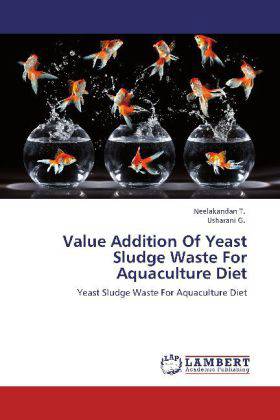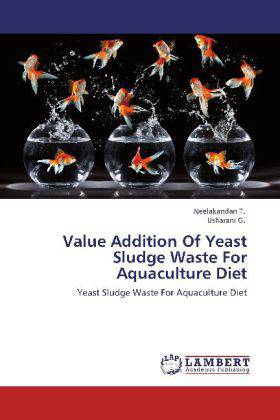
Je cadeautjes zeker op tijd in huis hebben voor de feestdagen? Kom langs in onze winkels en vind het perfecte geschenk!
- Afhalen na 1 uur in een winkel met voorraad
- Gratis thuislevering in België vanaf € 30
- Ruim aanbod met 7 miljoen producten
Je cadeautjes zeker op tijd in huis hebben voor de feestdagen? Kom langs in onze winkels en vind het perfecte geschenk!
- Afhalen na 1 uur in een winkel met voorraad
- Gratis thuislevering in België vanaf € 30
- Ruim aanbod met 7 miljoen producten
Zoeken
Value Addition Of Yeast Sludge Waste For Aquaculture Diet
Yeast Sludge Waste For Aquaculture Diet
T. Neelakandan, G. Usharani
Paperback | Engels
€ 61,95
+ 123 punten
Omschrijving
There is an urgent need in aquaculture to develop microbial control strategies, since disease are recognized as important constraints to aquaculture production, trade and the development of antibiotic resistance has become a matter of growing concern. One of the alternatives to antimicrobials in disease control could be the use of probiotic bacteria as microbial control agents. Twenty five strains were isolated from pond water and pond soil. Five isolates obtained by screening of twenty five isolates and used for further studies,The study indicates that the addition of yeast sludge waste is an effective method of converting undesirable distillery yeast sludge into a nutrient rich aquadiet along with other organic wastes. As the yeast sludge acts as a protein supplement. Fish responded well to the application of yeast sludge in terms of growth, yield and quality.Yeast sludge can also be recycled as a protein supplement in fish feed.
Specificaties
Betrokkenen
- Auteur(s):
- Uitgeverij:
Inhoud
- Aantal bladzijden:
- 52
- Taal:
- Engels
Eigenschappen
- Productcode (EAN):
- 9783659136375
- Verschijningsdatum:
- 23/05/2012
- Uitvoering:
- Paperback
- Afmetingen:
- 152 mm x 220 mm
- Gewicht:
- 91 g

Alleen bij Standaard Boekhandel
+ 123 punten op je klantenkaart van Standaard Boekhandel
Beoordelingen
We publiceren alleen reviews die voldoen aan de voorwaarden voor reviews. Bekijk onze voorwaarden voor reviews.









